What to Know About Solar Power for Homes
Solar power has emerged as a viable energy solution for homeowners. Understanding the different types of solar systems is essential for anyone considering this shift. Factors such as financial incentives and a home’s solar potential can greatly impact the decision-making process. As installations become more common, the benefits and considerations surrounding solar energy warrant a closer look. What key aspects should homeowners prioritize in their journey toward adopting solar energy?
Understanding Solar Power Basics
Solar power serves as a renewable energy source that harnesses sunlight to generate electricity. This sustainable approach not only reduces reliance on fossil fuels but also mitigates greenhouse gas emissions, contributing to environmental preservation. Solar energy systems convert sunlight into usable electricity through photovoltaic cells or solar thermal processes. Homeowners can benefit from this technology by reducing their energy bills and increasing the value of their property. Additionally, solar power systems can often be integrated with existing electrical grids, providing backup energy solutions during outages. Understanding solar power basics is essential for homeowners considering this energy alternative, as it involves evaluating site conditions, energy needs, and potential incentives. Embracing solar energy represents a significant step towards sustainable living and energy independence. Furthermore, renewable energy capacity has increased dramatically over the past decade, highlighting the growing importance of solar power in the energy landscape.
Types of Solar Energy Systems
Various types of solar energy systems cater to different energy needs and preferences. The most common types include grid-tied, off-grid, and hybrid systems. Grid-tied systems connect directly to the utility grid, allowing homeowners to use solar power while drawing from the grid when necessary. Off-grid systems operate independently, relying solely on solar energy, making them ideal for remote locations. Hybrid systems combine both approaches, providing flexibility and energy security by integrating battery storage. Each system varies in installation complexity, cost, and long-term benefits. Additionally, solar water heating systems harness sunlight to heat water, further diversifying solar energy applications. Understanding these options enables homeowners to make informed decisions tailored to their specific energy requirements and lifestyle. Incorporating renewable energy into your home is a significant step towards sustainable living and reducing your environmental impact.
Financial Incentives and Tax Credits
Exploring financial incentives and tax credits can greatly impact the affordability of solar energy systems for homeowners. Numerous federal, state, and local programs exist to encourage the adoption of solar power. The Federal Investment Tax Credit (ITC) allows homeowners to deduct a significant percentage of the installation costs from their federal taxes, making solar systems more financially accessible. Additionally, many states offer rebates or grants, reducing upfront expenses further. Some local governments provide property tax exemptions for solar installations, ensuring that homeowners won’t face increased taxes due to their solar investments. Utility companies may also have incentive programs that offer credits for excess energy produced, enhancing the financial viability of solar energy systems. Overall, understanding these incentives is essential for homeowners considering solar power. Furthermore, the concentration of power in the energy market can influence the availability and effectiveness of these financial incentives.
Evaluating Your Home’s Solar Potential
Evaluating a home’s solar potential requires an assessment of roof orientation and shade analysis. Proper roof orientation maximizes sunlight exposure, while shade analysis identifies obstructions that can limit solar energy capture. Understanding these factors is essential for homeowners considering solar installation. Additionally, homeowners should consider how hybrid work models may influence their energy consumption patterns when working from home.
Roof Orientation Assessment
A thorough roof orientation assessment is essential for determining a home’s solar potential. The orientation of a roof considerably influences the amount of sunlight it receives throughout the day. Ideally, roofs facing south capture the most sunlight, maximizing energy production. East and west-facing roofs can also be effective, though they may generate less energy compared to southern exposures. Additionally, the pitch of the roof affects solar panel efficiency; a steeper angle can enhance energy capture in certain geographic locations. Homeowners should evaluate their roof’s orientation and angle to determine the best placement for solar panels. This assessment not only informs potential energy output but also aids in selecting the most suitable solar technology for their specific situation.
Shade Analysis Techniques
After evaluating roof orientation, the next step in determining a home’s solar potential involves examining shade analysis techniques. These techniques assess how nearby structures, trees, and other obstructions may cast shadows on solar panels throughout the day and year. One common method is utilizing shading analysis software, which creates a 3D model of the property and simulates sun exposure at different times. Additionally, physical tools like a solar pathfinder can help visualize potential shading effects. Homeowners can also conduct a manual assessment, noting when and where shadows fall during peak sunlight hours. Understanding these shading impacts is essential, as they can considerably reduce a solar system’s efficiency, ultimately influencing the financial return on investment for solar energy systems.
Installation Process and Considerations
When homeowners decide to invest in solar power, understanding the installation process and its various considerations becomes essential for a successful changeover. The installation typically begins with a site evaluation, where technicians examine roof space, orientation, and shading. Homeowners must also consider local regulations, permits, and potential homeowner association guidelines. Choosing the right solar panel system involves reviewing energy needs, budget, and available incentives. Installation usually requires professional assistance, ensuring adherence to safety standards and ideal placement. Additionally, potential disruptions during installation should be discussed to prepare for any temporary inconveniences. Finally, understanding financing options, including leases and loans, plays a significant role in making informed decisions throughout the installation process. Practicing mindfulness techniques during this period can help homeowners manage any associated stress and ensure a smoother transition to solar energy.
Maintenance and Longevity of Solar Systems
Successful installation of solar power systems is only the beginning of the journey toward sustainable energy. Regular maintenance is essential to guarantee peak performance and longevity of these systems. Homeowners should routinely inspect solar panels for dirt, debris, or shading that can hinder efficiency. Professional assessments are recommended every few years to identify potential issues, such as inverter malfunctions or wiring problems. Keeping the system clean and well-maintained can greatly extend its lifespan, typically ranging from 25 to 30 years. Additionally, monitoring energy production can help homeowners notice any declines in performance early on. By prioritizing maintenance, homeowners can maximize their investment in solar energy and contribute to a more sustainable future.
Long-term Benefits of Going Solar
While the initial investment in solar energy systems may seem intimidating, the long-term benefits far outweigh the upfront costs. Homeowners who opt for solar power enjoy substantial savings on their electricity bills over time. By generating their own energy, they become less reliant on fluctuating utility prices. Additionally, many regions offer tax incentives and rebates, thereby reducing overall expenses. Solar energy systems also increase property value, making homes more attractive to potential buyers. Moreover, by utilizing renewable energy, homeowners contribute to environmental sustainability, reducing their carbon footprint. As technology advances, solar systems become more efficient and affordable, ensuring that long-term savings and environmental benefits continue to grow. Consequently, embracing solar power proves to be a wise investment for the future.
Frequently Asked Questions
Can Solar Panels Work During Cloudy or Rainy Days?
Solar panels can still generate electricity during cloudy or rainy days, albeit at reduced efficiency. They rely on diffused sunlight, allowing for some energy production, making them a viable option even in less-than-ideal weather conditions.
How Do Solar Systems Affect Home Insurance Policies?
Solar systems can impact home insurance policies by increasing coverage needs due to their value. Insurers may adjust premiums, and homeowners must inform their provider to guarantee adequate protection for the solar installation.
What Happens to Solar Panels in Extreme Weather Conditions?
Extreme weather conditions can impact solar panels, potentially causing damage from high winds, hail, or heavy snow. However, most panels are designed to withstand harsh elements, ensuring functionality and durability when properly installed and maintained.
Can I Install Solar Panels Myself?
The question of whether one can install solar panels independently often arises. While DIY installation is possible, it requires extensive knowledge of electrical systems, local regulations, and safety precautions to guarantee effectiveness and compliance with standards.
How Do I Choose the Right Solar Installer?
When selecting a solar installer, one should consider factors such as experience, customer reviews, warranties offered, certification, and pricing. Thorough research and obtaining multiple quotes can help guarantee a reliable and efficient installation process.
Conclusion
In summary, embracing solar power for homes offers numerous advantages, from reducing electricity costs to enhancing property value and promoting environmental sustainability. By understanding the various types of systems available and evaluating individual solar potential, homeowners can make informed decisions. Financial incentives further ease the shift, while regular maintenance guarantees peak performance. Overall, investing in solar energy not only benefits homeowners economically but also contributes positively to the planet’s future.



